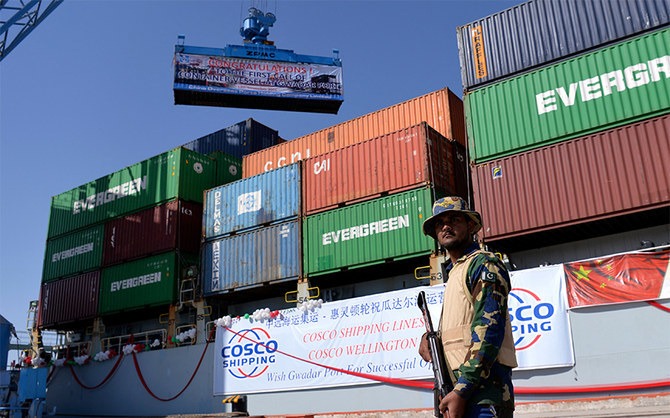ISLAMABAD: Cost-effectiveness and value-addition through the use of modern tools and technologies is the ultimate solution to strengthen the manufacturing sector of Pakistan, said Prof. Dr Qais Aslam, former chairman Research and Development (R&D) Committee at the University of Central Punjab, while talking to WealthPK.
According to Dr Qais, the industries’ importance and overall output are nowadays judged in view of value-added finished products. Value-addition and innovative techniques are the basic parameters that can provide technical support and expertise to upgrade the services sectors and agricultural exports, he added.
Citing the importance of R&D to upgrade the industrial sector, Dr. Qais said in today’s world, cost-effective international contracts could only be secured through capacity-building and value-added investment in the areas of research and development (R&D) in any particular industrial unit.
In response to a question, he said Pakistan could overcome the challenges of rising population and global recession by upgrading its industries and infrastructure with innovative technologies and subsequently enhancing the value of finished products to earn valuable exchequer from the export-oriented sector.
“Pakistan’s annual population is growing at the rate of 1.9 percent, which is more than 237 percent of the global annual rate (0.8 percent in 2022). Amidst this scenario, Pakistan needs an industry that enhances employment opportunities and income for the increasing population. This is only possible through the establishment of a skill-based education system in the country,” Dr Qaid continued.
He also pointed out that the academia and higher educational institutions in Pakistan still lagged behind in generating innovative entrepreneurial ideas.
The private sector also felt it convenient to import build-up machines rather than enhancing their respective research and development side, he added.
Out of the long list of Pakistan’s major industries including cotton, textile, cement, steel, tobacco, chemicals and machinery, the leading contributors of Pakistan’s exports include surgical instruments, garments and cement industry.
Identifying loopholes in the manufacturing industry, Dr. Qais said high-cost of production, skill issues, low productivity of machines, and constraints of global quality supply networks were the areas where Pakistan needed to invest for upgradation of cost-effective and value-added production.
When contacted, Dr. Bilal Ahmed, Director Marketing Pakistan Council of Scientific and Industrial Research (PCSIR), said the government was encouraging research and development in all export-oriented industries.
He said the PCSIR was assisting the surgical and textile sectors particularly and providing them with the required assistance.
Substantial innovation in the industry is very crucial for entrepreneurship, Dr. Bilal said, adding that the PCSIR was making inclusive endeavours for promotion of rural industries and upgradation of major industries in view of agro-processing aspects and technological enhancements.
He said the PCSIR had established a network with certain selected industries with the assistance of technological research institutes and laboratories to promote overall technological development of industries.
Dr. Bilal said the PCSIR had also undertaken special scientific and technological surveys and investigations referred to it by the federal government to ensure upgradation of SMEs and local and major industries and enhance their capacity for production of cost-effective products.






